Hello and welcome to Author Interviews. My name is Fiona Mcvie.
Thanks for inviting me, Fiona

Let’s get you introduced to everyone, shall we? Tell us your name.
Mark Fine, though I wish I had a few more syllables in my name. I envy your four: Fi/ona Mc/vie.
Fiona: Where are you from?
Born in the City of Gold—Johannesburg, in faraway South Africa. I now live in sight of Catalina Island, south of Los Angeles.
Fiona: A little about yourself (ie, your education, family life, etc.).
I’m a veteran of the record industry; worked with wonderful artists like Sheryl Crow, Boys II Men, Bon Jovi, and Bryan Adams. It was tremendous being around such creative artists, on a daily basis, and help them achieve their creative aspirations.
Unfortunately, my late wife was diagnosed with breast cancer. I quit my music gig to care for her, and raise our two boys. Frankly, I surprised myself at how well I took to becoming ‘Mr. Mom’. In reflection, the most rewarding mission of my life. My sons have really prospered. The elder is a real rocket scientist at SpaceX. The younger is conquering it at business school. Both grateful and proud. Thankfully, romantically speaking, life has afforded me a second chancewith a wonderful soulmate.
Fiona: Tell us your latest news.
I just released the audiobook for The Zebra Affaire on Audible.com. For someone who spent a major part of his career in the recording studio, it’s odd it took me this long to co-produce this recording. Almost 10 hours—unabridged. Truthfully, I needed a voice actor with South African roots to do the narration. When I chanced upon the talentedDennis Kleinman, everything then changed; I had no excuse to not move forward with the audio project.
Dennis is familiar with the dialects and colloquialisms that make The Zebra Affaire so authentic. And for the listener—through my words and Dennis’s voice—Elsa and Stanwell’s struggle to preserve their forbidden love against extraordinary odds (the full force of the apartheid regime), is vividly brought to life in this audiobook. HEAR an excerpt of Dennis Kleinman’s compelling narration HERE. Briefly, let me set the scene. These are the events leading to Elsa and Stanwell’s fateful first meeting. She being white, and he being black, their relationship proved to be cruely complicated in segregated South Africa. Enjoy the Listen!
Every author should treat themselves to the tremendous experience of hearing their book read back to them by a gifted narrator. Dennis Kleinman certainly did that for me. The way he seamlessly transitions from character to character, by adding his personal vocabulary as an actor to my plot, is extraordinary. An outstanding performance!
This week, I also published a small folio of short stories. It’s titled Two Short Shorts: Short Stories of Strangers in Strange Lands. Though the book cover is an ancient picture of me, as a little tyke, wearing embarrassingly short shorts, it is not at all biographical. However, it is a commentary on being a ‘square peg in a round hole’ which I personally find relatable.
Though the book cover is an ancient picture of me, as a little tyke, wearing embarrassingly short shorts, it is not at all biographical. However, it is a commentary on being a ‘square peg in a round hole’ which I personally find relatable.
Fiona: When and why did you begin writing?
It’s a natural evolution of my ‘Mr Mom’ role. My sons were growing up andmoving off to college. I expected becoming an empty nester would be hazardous to my well-being, so a new sense of purpose was needed. Coming from the music world, I saw writing as a natural evolution. However, my intent was to write songs. Failed miserably! Instead, I wrote an 86,000 word novel. My, I do admire those songwriters. The ability to compress such massive ideas—filled with emotion and rhythm—into three minutes of lyrical rhyme is a gift that I wish I had. Still, I am going to keep trying…
Fiona: When did you first consider yourself a writer?
The moment someone else read my words; and that these same words resonated with them, challenged them, made them weep, made them angry, and compelled the reader care for the characters I had created.
Fiona: What inspired you to write your first book?
My paternal grandmother ran a library. Hence, I always admired the printed page. The next step was deciding which story to tell. It took time and distance—from the country of my birth—to better understand the complicated social dynamics there. It is not simply a black and white story. But I could see patterns begin to repeat themselves here in the United States and elsewhere, so I felt The Zebra Affaire could serve as a cautionary tale.
Fiona: How did you come up with the title?
“The Zebra Affaire” speaks of a forbidden romance across the color divide in a malicious, racist society. Elsa and Stanwell’s affair was not only socially unacceptable, but it was illegal—with seven yearsimprisonment as a consequence of being discovered by the authorities. However, stepping away from bigoted manmade laws, whether black or white—we are all truly equal—as are the black and white stripes of a zebra.
Fiona: Do you have a specific writing style? Is there anything about your style or genre that you find particularly challenging?
I’m a patient writer. Research is a key element. It may elongate the writing process, however, the knowledge I gain is well worth it. Better still: I’m the vehicle that transfers that same knowledge to my readers—but in a far more entertaining way. It is satisfying, when I meet with a book clubs, to find The Zebra Affaire has past the Google test. Nowadays, it’s so easy to be fact checked that I do my best to be a diligent researcher.
Fiona: How much of the book is realistic and are experiences based on someone you know, or events in your own life?
The canvas on which I paint the lives of my characters is totally realistic. I guess 1976 South Africa isn’t quite long ago enough to be categorized as Historical Fiction, but setting the apparent ‘youth’ of the period aside, the book has all the bones, and authenticity, of historical fiction. As I was raised during those torrid times, there are certainly echoes of my personal experiences throughout the novel.
Fiona: To craft your works, do you have to travel? Before or during the process?
No doubt. The grand finale in Zebra is a safari sequence. I used that as an excuse to go on safari; a field trip to the magnificent, Londolozi game reserve. With camera and pen, I documented the setting and behavior of animals, humans, location and weather, in order to bring a heightened sense of immediacy to my writing. I’m a big believer of exploring our full senses in storytelling. I needed to hear the chuff of a lion, smell the char of a brushfire, feel the grit of the parched earth, taste the organic nature of a rustic meal, and see the splendor of an African night sky—unspoiled by big city light pollution—to better articulate these pure moments for my reader.
Fiona: Who designed the covers?
I did. Not that it was my intent. As a remedy for writer’s block; rather than walking away in frustration, I chose to change my creative focus. Rather than struggle to get twenty-six letters to march in cogent order, I pivoted to pictures, graphics, fonts, and layouts. I taught myself Photoshop, thanks to YouTube, and almost organically designed the cover as the book’s manuscript was shaped.
Fiona: Is there a message in your novel that you want readers to grasp?
Yes. The only up-front way to fairly evaluate the world around us, specifically people, is on the basis of merit. As guiding criteria, merit, is inherently colorblind, nor is it swayed by creed, race, gender, tribe, religion, etc. Also, merit is contextual. You do not apply the same metric to both subsistent farmer and billionaire. From personal experience, frankly, merit was the only sane way to navigate through the arcana and social distortion of the unfathomable, cruel apartheid laws.
Merit sweeps away the emotion of ideology, the prejudice of fear, and the foolishness of ignorance. In an imperfect world, merit is the purest way I have found to deal with folks on a person-to-person basis, without preconceived biases. That said; merit expects everyone to contribute to the greater good, to the best of their individual ability. To some that may seem harsh; to me it is both fair and dignified.
Fiona: Are there any new authors that have grasped your interest? Who is your favorite writer, and what is it about their work that really strikes you?
Similar to the record biz, with its vibrant Indie Scene, I feel the publishing world has a comparable pool of extraordinary emerging talent. I’m a fan of Elizabeth Horton-Newton (The View from the Sixth Floor), Julie Mayerson Brown (The Long Dance Home), Geoff Nelder (Aria: Left Luggage), Eric Gates (Outsourced), Jack Kregas (Choice Cruise Lines), Jean Gill (Song at Dawn).
Fiona: If you had to do it all over again, would you change anything in your latest book?
Perfection, and the pursuit of it, is so costly—both in emotions and treasure—that I have learned to let go. Nevertheless, I do regard my books as living documents. The process of producing the audiobook was most informative; I found I had to tweak some of the dialog sequences to make them more natural for the narrator to articulate.
Fiona: If your book was made into a film, who would you like to play the lead?
Stanwell should be played by Boris Kodjoe. Margot Robbie would be my definite to embody Elsa. However, I am interested in hearing suggestions from our readers. Hey, let us know in the comments section below.

Boris Kodjoe as Stanwell?

Margot Robbie as Elsa?
Fiona: Any advice for other writers?
Write your ending first. It may seem counter-intuitive; however, consider it to be like a lawyer’s closing argument. Everything that happens before leads up to that dramatic wrap-up at the end of a court case. Switching to another metaphor, by knowing your destination, you increase your odds of getting there in one piece. Your early draft of the book’s conclusion is like a sign post guiding the way. Of course, go back and review your closing, tweak, then repeat; especially as your writing muscles develop, the further you get into your WIP (work in progress).
Fiona: Anything specific you want to tell your readers?
I am deep into my next novel; it is an interesting collaboration. If songwriters can collaborate, why not authors? Again, the focus will be on Sub-Saharan Africa, though it will be a decade later than the 1976 setting of The Zebra Affaire. Our working title is “The Spy in the Hyena Den”.
Fiona: What book are you reading now?
Alan Furst, “The Spies of Warsaw”
Fiona: Do you remember the first book you read?
Herman Wouk, “Winds of War” is the first significant book I read.
Fiona: What makes you laugh/cry?
Animals. I weep for the countless rhino and elephant slaughtered for their ivory and horn. Tragic waste; these magnificent creatures killed for mere trinkets and problems better solved with a certain blue pill. Yet, watching baby elephants trying to learn to use their rubbery trunks for the first time is the funniest thing, ever.
Fiona: Is there one person, past or present, you would love to meet? Why?
Winston Churchill. Supreme writer, orator, statesman, and blessed with an extraordinary gift of foresight.
Fiona: Imagine a future where you no longer write. What would you do?
Philanthropy. Especially wildlife conservation and breast cancer research.
Fiona: What do you want written on your head stone?
‘So Little Time (So Much to Do)’: the title of a 1938 Louis Armstrong song.
Fiona: Do you have a blog or website readers can visit for updates, events and special offers?
Fiona, so kind of you to offer. I can be reached at www.markfinebooks.com and www.finebooks.coand my Twitter handle is @MarkFine_author
Blog: Mark Fine | RUMINATIONS https://markfineauthor.wordpress.com/
The Zebra Affaire [130 Amazon Reviews]

ebook: https://www.amazon.com/ZEBRA-AFFAIRE-Apartheid-Love-Story-ebook/dp/B011PXSEWG/

Audiobook: https://www.audible.com/pd/Romance/The-Zebra-Affaire-Audiobook/B076C1CVNS/
Download “THE ZEBRA AFFAIRE” Audiobook for FREE
When you sign up for Audible 30-day Free Trial
Click the link below for the Special FREE Offer:
http://www.audible.com/offers/30free?asin=B076C1CVNS
You Save $19.95 (100%)

Two Short Shorts (includes Bonus excerpt from “The Zebra Affaire”):
ebook: https://www.amazon.com/Two-Short-Shorts-Stories-Strangers-ebook/dp/B0771X8VNC/
Amazon Authors Page:https://www.amazon.com/Mark-Fine/e/B00KOIP05S/
YouTube channel: https://www.youtube.com/c/MarkfineAuthor
Thanks to Fiona Mcvie for this interview. You can view her original post here.



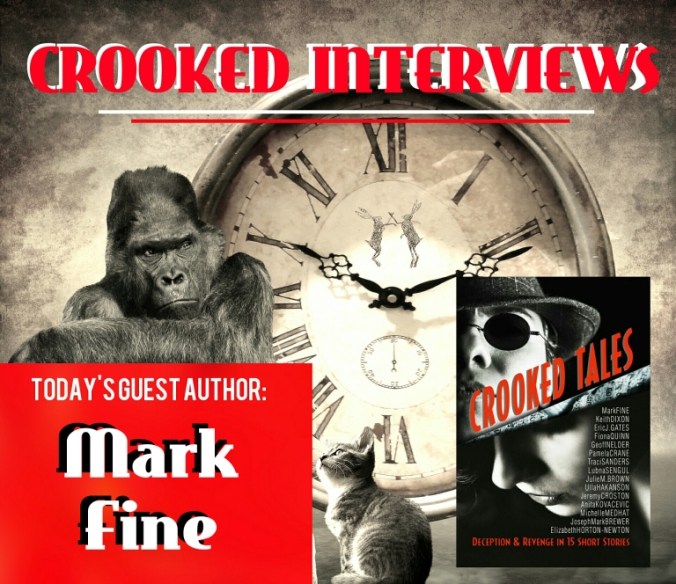


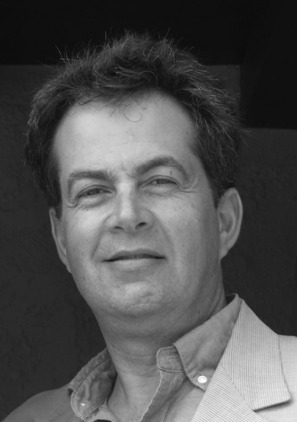
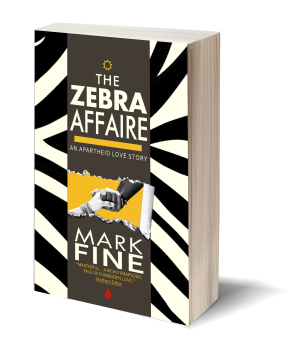
 In 2017 I was contacted by
In 2017 I was contacted by  During those apartheid years, due to the strict laws governing ‘separate development’ which is the actual meaning of the word “Apartheid”, it was illegal for whites and blacks to eat in the same restaurants, to live in the same suburbs, and certainly to engage in any sexual activity, let alone fall in love with one another. Yet, one cannot really enforce any laws about love and I know that although this book was fiction, it certainly is a window into many lives that struggled through that time in South Africa. The statute books called sexual intercourse between people of different skin color, The Immorality Act, which was punishable by jail and even worse, especially for black men, the possibility of death for ‘rape’. All laws pertaining to the control of the apartheid system were brutal, vicious and abhorrent.
During those apartheid years, due to the strict laws governing ‘separate development’ which is the actual meaning of the word “Apartheid”, it was illegal for whites and blacks to eat in the same restaurants, to live in the same suburbs, and certainly to engage in any sexual activity, let alone fall in love with one another. Yet, one cannot really enforce any laws about love and I know that although this book was fiction, it certainly is a window into many lives that struggled through that time in South Africa. The statute books called sexual intercourse between people of different skin color, The Immorality Act, which was punishable by jail and even worse, especially for black men, the possibility of death for ‘rape’. All laws pertaining to the control of the apartheid system were brutal, vicious and abhorrent. Lying next to ‘Max’ was a black man who sadly must have died in an act of violence as half of his face was ‘dented’ if you will. He was obviously at the same stage of dissection as his neighbor Max. As I studied the two cadavers, side by side, something very profound overcame me as, looking into the body, everything was obviously the same, and other than typical different characteristics between races, the only difference that hit me, and hit me hard, was the skin tone, and how thin that pigmented layer of color was. It was less than one millimeter thick. LESS THAN ONE MILLIMETER THICK!!
Lying next to ‘Max’ was a black man who sadly must have died in an act of violence as half of his face was ‘dented’ if you will. He was obviously at the same stage of dissection as his neighbor Max. As I studied the two cadavers, side by side, something very profound overcame me as, looking into the body, everything was obviously the same, and other than typical different characteristics between races, the only difference that hit me, and hit me hard, was the skin tone, and how thin that pigmented layer of color was. It was less than one millimeter thick. LESS THAN ONE MILLIMETER THICK!!




 . I live just outside of Annapolis, Maryland which is in the Baltimore/Washington corridor. I mention the corridor because that is where all my books in The Devil’s Due collection take place. My book,
. I live just outside of Annapolis, Maryland which is in the Baltimore/Washington corridor. I mention the corridor because that is where all my books in The Devil’s Due collection take place. My book, 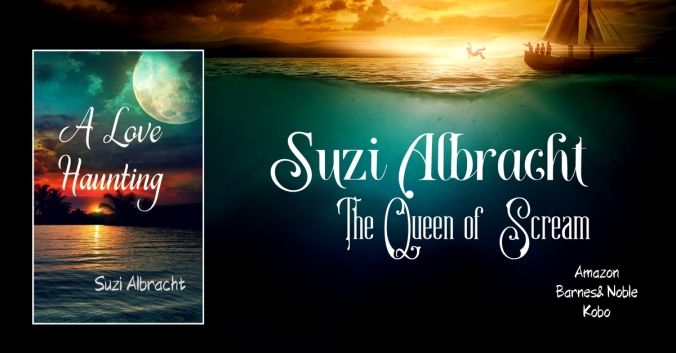
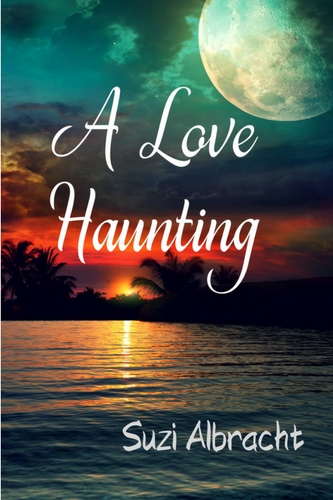
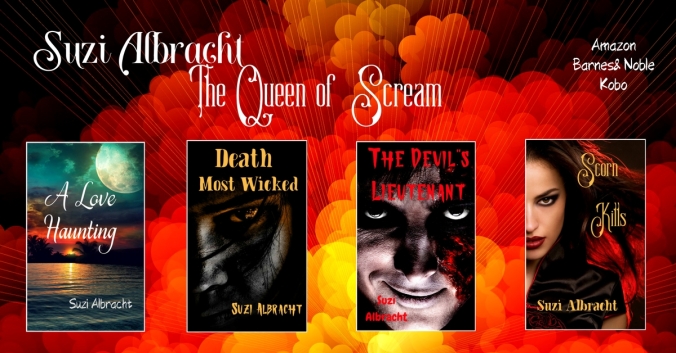
 THE FOREST OF TREES – the BLURB:
THE FOREST OF TREES – the BLURB:
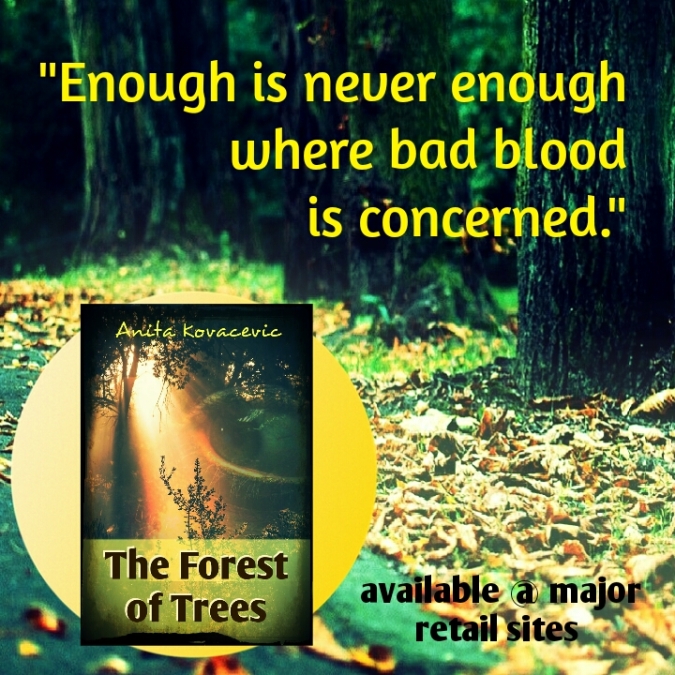








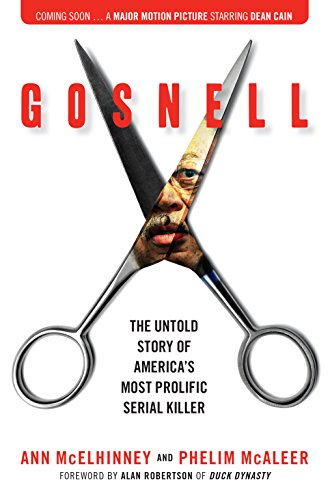 their investigative glare from the inhumane travesty conducted in Philadelphia—the mutilated, mass killing of born-alive infants within the seedy walls of the Women’s Medical Society Clinic by a certain Doctor Kermit Gosnell. This ‘Doctor’ eschewed the Hippocratic oath and human decency. Instead, Kermit Gosnell chose a bleak path nearer to that of Josef ‘The Angel of Death’ Mengele. Mengele did not act alone. His grizzly deeds in Auschwitz were government sanctioned.
their investigative glare from the inhumane travesty conducted in Philadelphia—the mutilated, mass killing of born-alive infants within the seedy walls of the Women’s Medical Society Clinic by a certain Doctor Kermit Gosnell. This ‘Doctor’ eschewed the Hippocratic oath and human decency. Instead, Kermit Gosnell chose a bleak path nearer to that of Josef ‘The Angel of Death’ Mengele. Mengele did not act alone. His grizzly deeds in Auschwitz were government sanctioned.